Tools are usually designed with one task in mind, but many can be used for all sorts of jobs.
9 Tool Hacks You’ll Use Time and Time Again
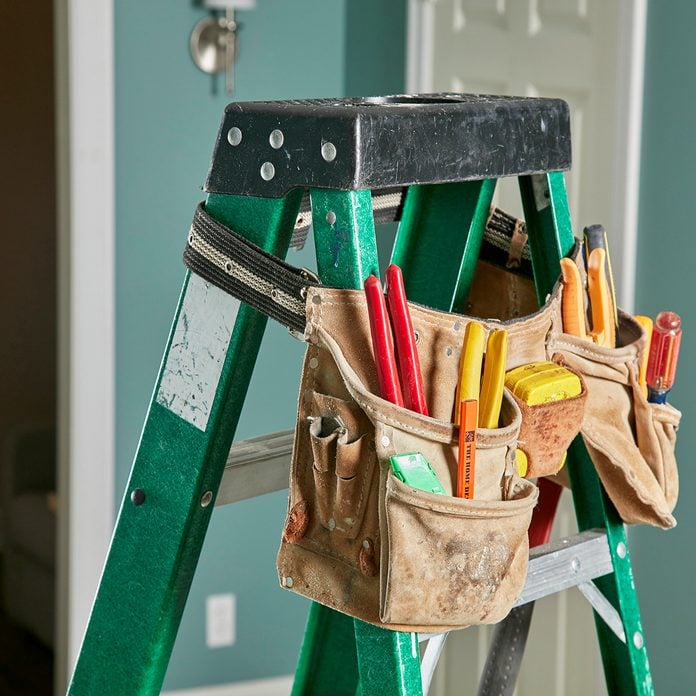
Think Outside the (Tool) Box
Tools are usually designed and built with one job in mind, but with a little imagination and some minor adjustments most tools can be used for all sorts of jobs. Take the classic tool belt. Typically, these are made to go around your waist (just like any other belt). But a little bit of creative thinking can turn a tool belt into a makeshift ladder bag. Here are some other great examples of unconventional uses for conventional tools.

Hang Your Roofing Tools
Use spring clamps to keep your hoses, extension cords, and other tools and materials from sliding off the roof. Don’t try this on brittle or scorching hot shingles or you may damage them. You can create a handier hook by sticking the clamp in a vise and bending up one of the handles.
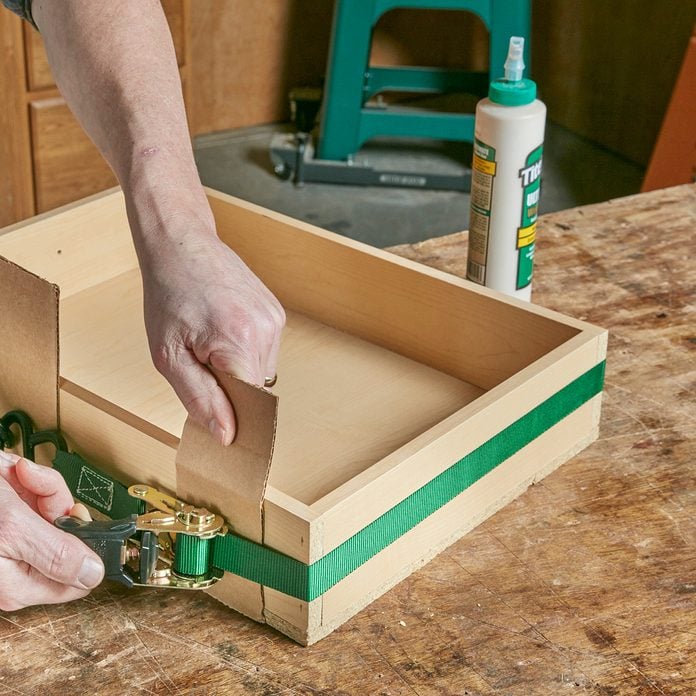
Clamp With a Tie-Down Strap
If you need to clamp boxes together, a ratchet tie-down strap can often do the job just as well as band clamps. Just make sure to protect the wood under the ratchet and hooks with cardboard.
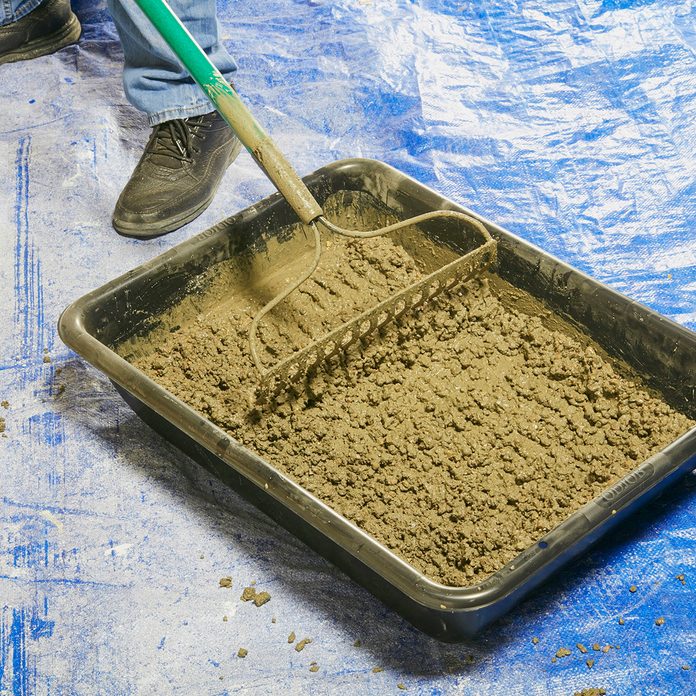
Mix Concrete With a Rake
Try a garden rake instead of a hoe the next time you have to mix concrete. The rake won’t splash as much water over the edge, and the tines do a good job of combining the water with the powder. With a hoe, you waste a lot of time just pushing powder around the tub. A medium mixing tub like the one shown costs around $10 online.
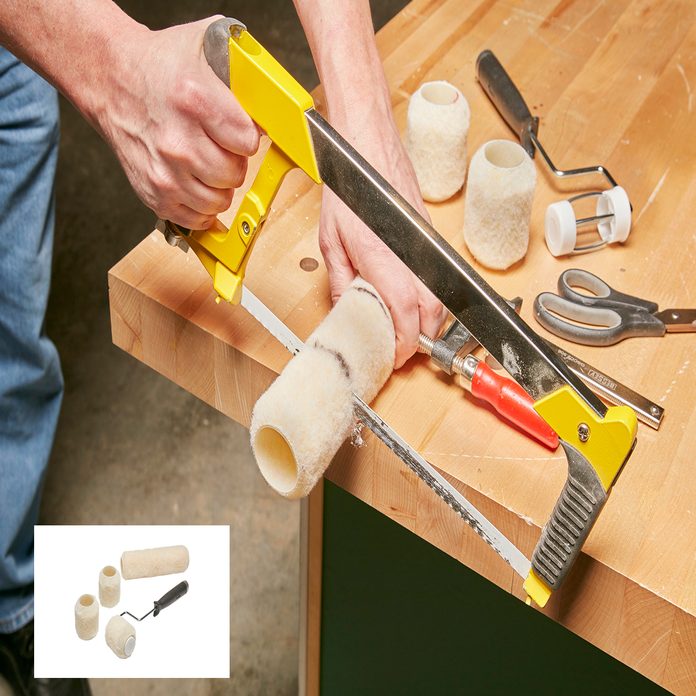
Make mini roller covers
Next time you’re in the paint department, pick up a 3-inch roller frame, the type that takes the same diameter cover as a standard 9-inch paint roller. You can then cut any 9-inch roller cover into three 3-inch covers to fit it. A 3-inch roller is perfect for painting trim or small stuff like a mailbox, but not every store carries 3-inch covers. This little trick will also cut the cost of the 3-inch roller covers in half.
Mark the 9-inch roller covers 3 inches in from each end. Cut into equal pieces with a hacksaw, holding the cover steady with a bar clamp. Trim the rough edges of the nap with scissors.
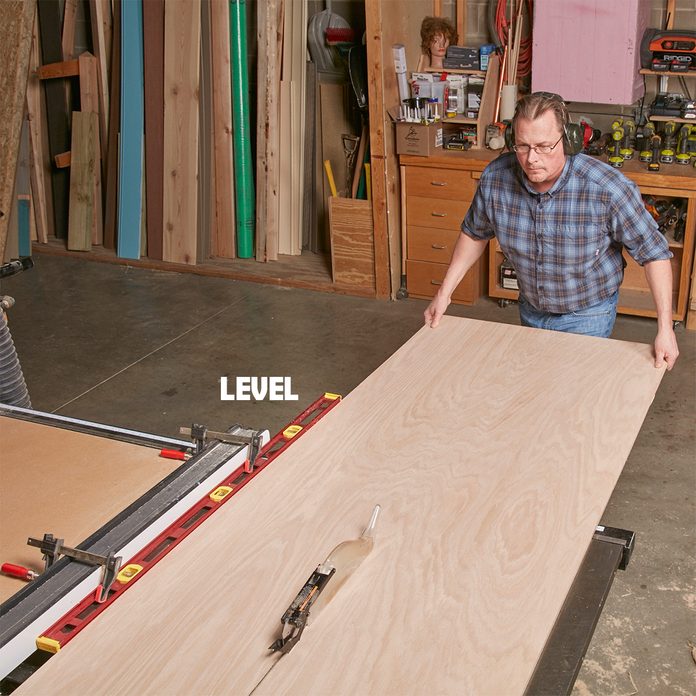
Use a Level To Extend Your Table Saw Fence
The only way to achieve a perfectly straight cut is to keep your material tight up against the table saw fence. But that’s hard to do when you’re cutting a large sheet of plywood on your own. Extending the fence with a 4-foot level will make it easier to keep the plywood on a straight and narrow path as it approaches and passes through the blade. Hold the level in place with a couple clamps.
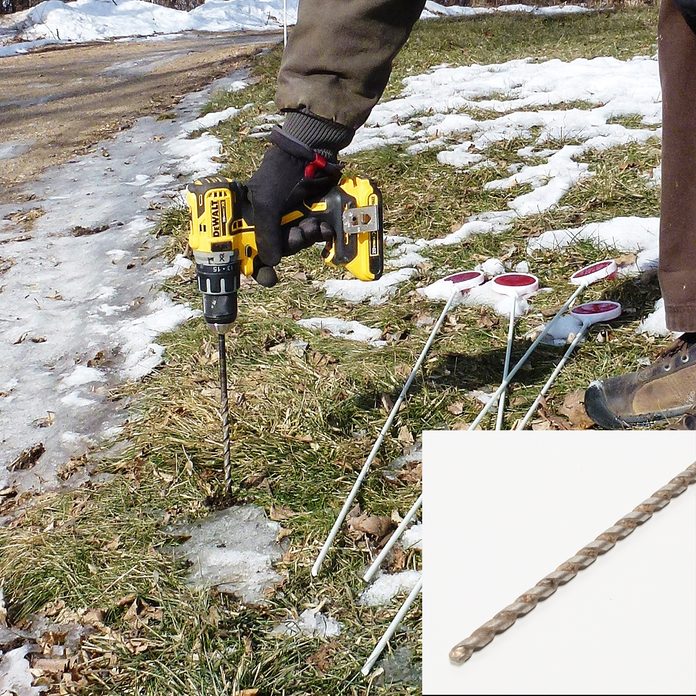
Need a Hole in Hard Soil? Use a Drill!
Have you ever waited too long to install your reflective driveway markers and discovered the ground was frozen? Or tried to install a yard sale sign in dry soil that’s as hard as concrete? Well, why not treat it as if it really were concrete and drill holes into it with a masonry bit? A 3/8-inch x 12-inch bit costs less than $13 at home centers.
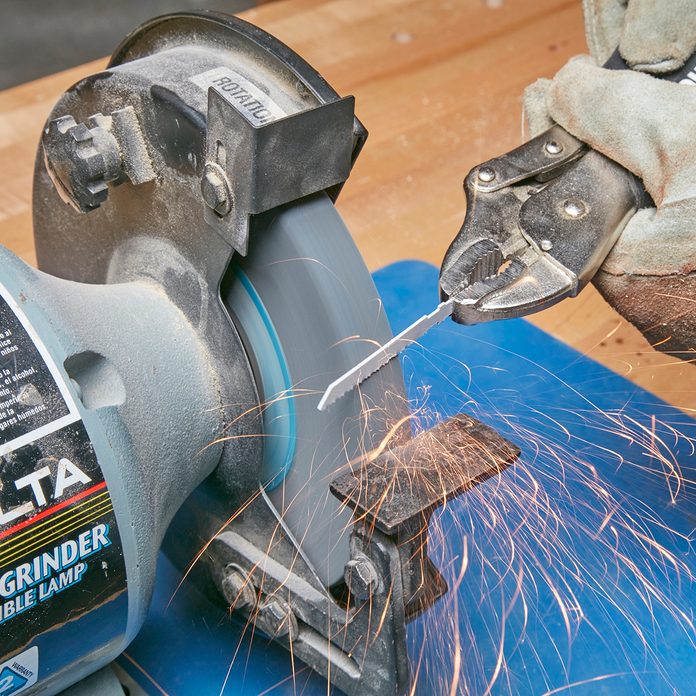
Make a Blade for Cutting Foam
A jigsaw will cut through rigid foam like butter—except butter doesn’t crumble into thousands of bits that mess up your shop, basement or garage. If you remove the teeth from a jigsaw blade, it will cut the foam just as well but without the mess. Remove the teeth with a grinder, and be sure to wear eye protection. Hold on to the blade with locking pliers, not your fingers!
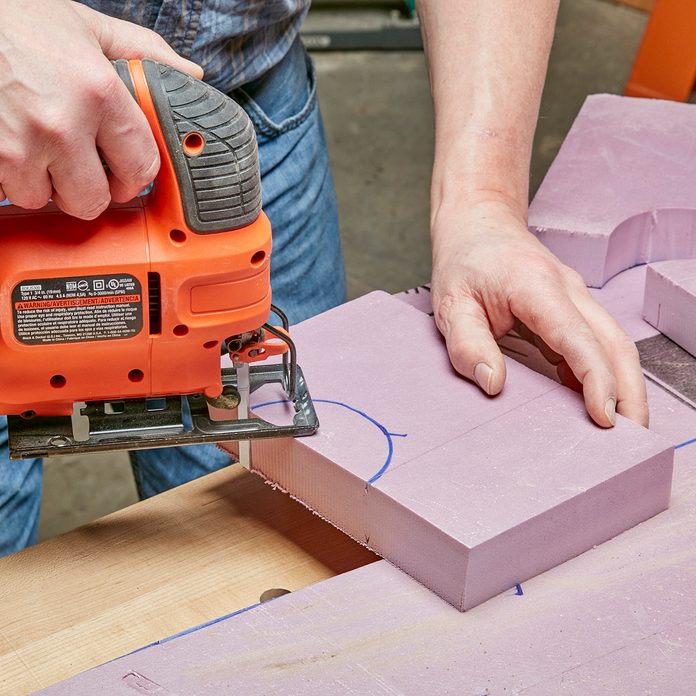
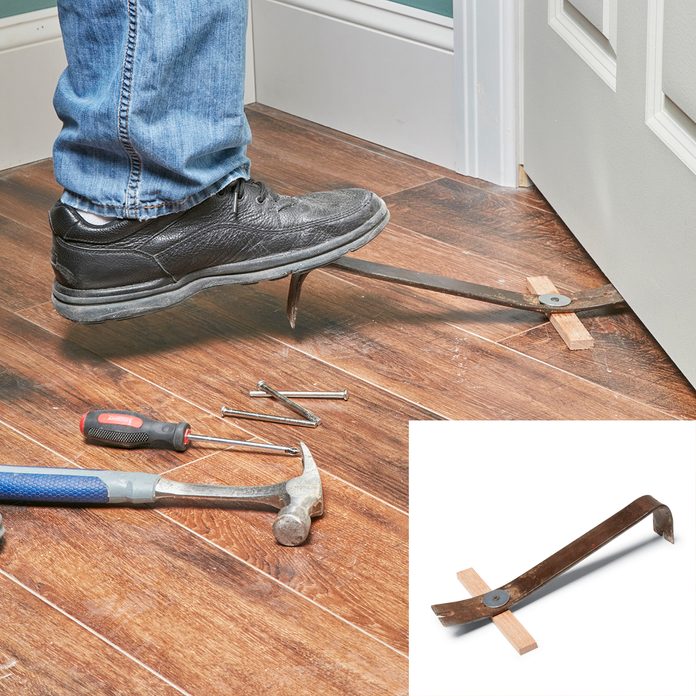
Lift Heavy Stuff With a Flat Pry Bar
If you have ever had to remove a solid-core door, you know how heavy they can be. Lifting them up to reinstall hinge pins can be a challenge if you’re working alone, but a flat pry bar (aka “flat bar”) can give you just the leverage you need.
If your flat bar won’t raise the door high enough, install a small block of wood at the fulcrum point of the pry bar to increase the lifting distance. Hold the block in place with a small screw and washer. Make sure the screw doesn’t poke through. If it does, grind off the end so it won’t damage the floor. This same setup can be used to raise bottom drywall sheets off the floor for fastening.




















